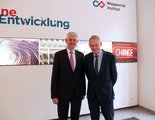New Research Structure and Dual Scientific Leadership for the Wuppertal Institute
A strong team: Prof. Dr. Uwe Schneidewind and Prof. Dr. Manfred Fischedick to provide joint scientific management for 13 new research units in four divisions

A strong team: Prof. Dr. Uwe Schneidewind and Prof. Dr. Manfred Fischedick to provide joint scientific management for 13 new research units in four divisions

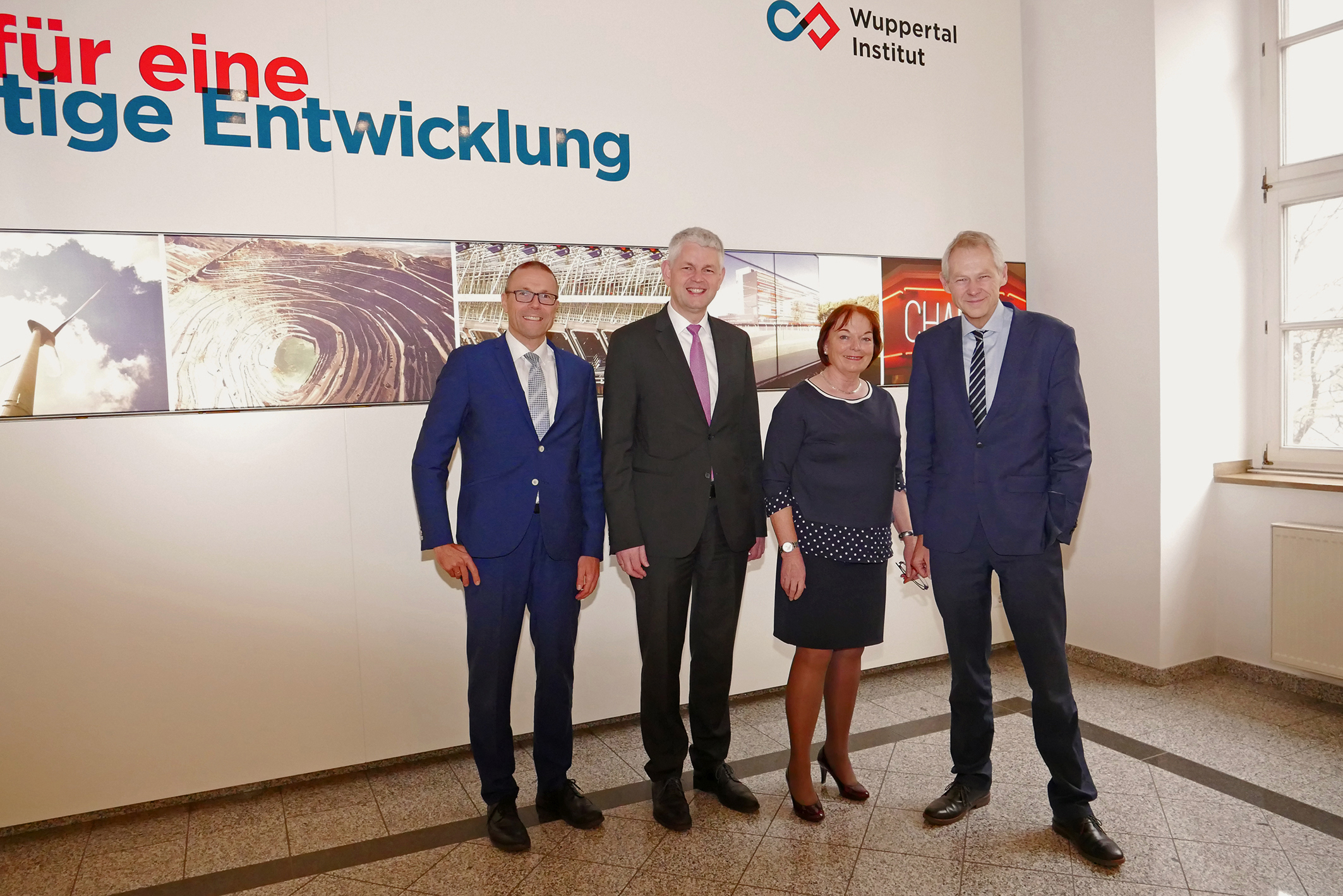
With a new research structure and dual scientific leadership, the Wuppertal Institute is positioning itself to face the challenges of the years ahead. In 2019, the strategic further development of the Wuppertal Institute's organisational structure was successfully implemented and now consists of 13 research units, each with a clearly outlined scope, within four divisions. By expanding its scientific leadership, the institute is now taking a further step towards strengthening its management. From 1 January 2020, Prof. Dr. Manfred Fischedick, up until now the Vice-President of the Wuppertal Institute, will take on its joint scientific management alongside Prof. Dr. Uwe Schneidewind as co-directors of the institute.
A situation that has already been established practice at the Wuppertal Institute for ten years will soon be official – Prof. Dr. Manfred Fischedick, who has until now held the position of Vice-President, is set to become a Scientific Managing Director of the institute, on equal standing with Prof. Dr. Uwe Schneidewind. The decision to adopt dual leadership of the workforce of over 230 is also a response to the growing complexity of the institute's work in terms of both content and organisation as well as to the development of complex transformation processes.
As Uwe Schneidewind emphasises, "The fact that the management of the institute, which I have shared on an equal footing with Brigitte Mutert-Breidbach and Manfred Fischedick for almost ten years, has now been formalised is another important boost for the institute's management and positioning."
Manfred Fischedick is looking forward to the new role and "working to address today's great variety of current transformational challenges and contributing towards the translation of profound scientific findings into practical action on a political and industrial level in collaboration with a strong team at the Wuppertal Institute."
Christoph Dammermann, State Secretary in the Ministry of Economic Affairs, Innovation, Digitalisation and Energy of the State of North Rhine-Westphalia (MWIDE) and Chairman of the Supervisory Board of the Wuppertal Institute, explains: "With their outstanding reputation, the two scientists will establish the Wuppertal Institute in a leading position in the national and international research landscape and actively support the federal state of North Rhine-Westphalia in overcoming the challenges of the transformation."
New research structure
Over the course of this year, 13 new research units began their work within the institute’s four divisions. The aim of the new research structure is to take account of the growth of the institute and the associated increase in its management complexity as well as presenting the Wuppertal Institute’s research fields more clearly from an external perspective.
About Manfred Fischedick
Energy and climate researcher Prof. Dr. Manfred Fischedick studied process engineering at the University of Dortmund between 1985 and 1991. He then earned his doctorate in energy technology at the University of Stuttgart in 1995. Following his move to Wuppertal, Manfred Fischedick became the Director of the "Future Energy and Mobility Structures" research group, a position that he held for many years. In June 2006, he took on the role of Vice-President of the Wuppertal Institute and has been its authorised representative since 2010. In 2008, he was appointed Supernumerary Professor at the University of Wuppertal's Schumpeter School of Business and Economics (Faculty of Management and Economics).
Manfred Fischedick's work focuses in particular on the systems-based analysis of transformation processes in the fields of energy, transport and industry; the derivation of practical CO2 reduction strategies; research into innovation dynamics and the market development of innovative technologies as well as national and international energy and climate policy. Manfred Fischedick is a member of numerous national and international scientific bodies, a coordinating lead author of reports for the Intergovernmental Panel on Climate Change (IPCC) and the author of more than 100 peer-reviewed articles in prestigious journals. He also advises decision makers in the political and industrial spheres at state, national, European and international level on the practical implementation of complex transformation processes.
Press release
Wuppertal Institut für Klima, Umwelt, Energie gGmbH
Responsible for content: Professor Uwe Schneidewind, President
Contact: Christin Hasken, Head of Communications and Public Relations
Tel.: +49 202 2492-187
Fax: +49 202 2492-108
E-mail: christin.hasken@wupperinst.org
Printable pictures
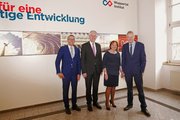
Chairman of the Supervisory Board of the Wuppertal Institute and State Secretary in the Ministry of Economic Affairs, Innovation, Digitalisation and Energy of the State of North Rhine-Westphalia, Christoph Dammermann, meeting with Prof. Dr. Uwe Schneidewind, Brigitte Mutert-Breidbach and Prof. Dr. Manfred Fischedick at the Wuppertal Institute on 28 November. Source: Wuppertal Institute
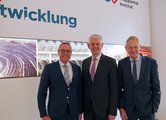
Christoph Dammermann (centre) met the Wuppertal Institute's Scientific Managing Directors, Uwe Schneidewind (left) and Manfred Fischedick (right), on 28 November 2019. Source: Wuppertal Institute
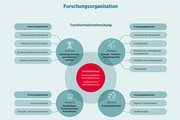
Die Grafik zeigt die Forschungsorganisation des Wuppertal Instituts. Quelle: Wuppertal Institut
